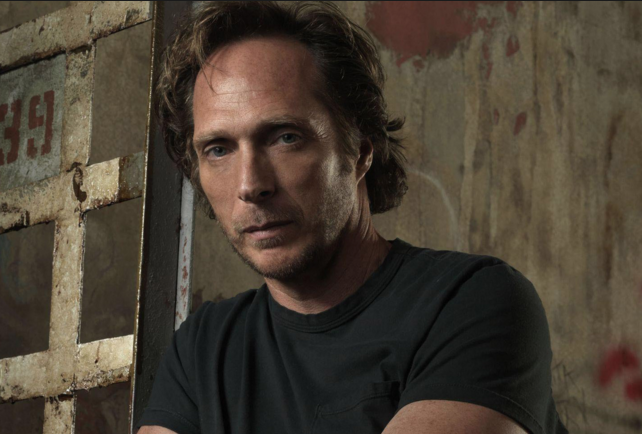
William Fichtner is one of Hollywood’s most recognizable and highly regarded character actors. He has appeared in more than seventy film and television roles, with Go, The Perfect Storm, Pearl Harbor, Black Hawk Down, The Dark Knight, and Armageddon amongst the most notable.
We were able to catch up with Mr. Fichtner in his home town of Buffalo, NY (he actually hails from the suburb of Cheektowaga, Maryvale High School class of ’74, facts he will proudly point out) where he was kind enough to take time out of his busy schedule to answer a few questions for us.
Has your process changed at all since you began acting?
Yes, it’s changed in the last two weeks [laughing]. No, I’m serious. It’s one of those things where you don’t figure out one thing to do, and then you do it for the rest of your life. I think it’s like everything you do, any sort of craft that people work at. You try things, and you figure out new things, and it evolves, and it becomes something that’s new and alive. We’re all students all the time. I still read the same books that I’ve been reading for thirty years. Every couple of years I pick up this one particular acting book, and every time I read it I learn something new from it. My process is completely different. I like to think it’s getting better [laughing].
Do you find yourself choosing different types of roles as the years go on?
Well, I’ve always had a pretty good commitment to wanting to go new places. I think the business sees me as a character actor. I think of myself as a character actor. Recently I completed work on a film, and then a could of months later I was offered another film that was very similar in nature. The part itself was almost identical to the other guy. It was a military guy, the way he walked and talked, and said to my agent no. They were like “Why? It’s really good.” I said it’s because i just played the guy. I guess I could play the same guy in another movie, but I don’t really want to repeat myself. I’m always looking for something new.
What’s your process like on the set? Do you like spontaneity, or do you like to rehearse?
I love to rehearse, and I think it’s important. Often times we’ll be ready to shoot a scene, and the first AD (Assistant Director), who runs the set, will say “Should we shoot the rehearsal?” And I’m always like “Absolutely, roll the camera.” The mistakes are often the interesting things, when the wrong line comes out, or something happens. That’s the thing that more often or not ends up in the movie, because it was spontaneous and it was real. I have to say, I’m old school. From coming out of New York, working from playwrights where the word is gold, if there’s great dialogue, there’s no reason to try to improve it. Just try to realize the words that are on the page, and make them come to life.
You’ve worked in television, film and stage. Do you have a preferred medium?
I like working on films probably more than anything. I think there’s a process to making a movie, even an independent movie that is sometimes made on a wing and a prayer, where there tends to be a little more time. I worked on The Lone Ranger for seven and a half months, and four months last summer on Independence Day. Your page count every day on a big movie could be a page, page and a half. It’s a lot of attention to detail. Where as I’ve shot small indie films in seventeen days that were a hundred and ten pages. You’ve gotta crank.
Does that affect your performance?
Not really. Everything is preparation. I enjoy getting prepared for a role as much as I do the actual shooting of it. There are films that I’ve done that I haven’t seen. The older I get, I watch myself and I’m like “Ugh, what were you thinking about?” But I love doing it, and I love getting ready for it. Usually I need to see a film about three or four times before I may give it a sign of approval.
Can you separate yourself from the process as your watching it?
Well I remember everything. I remember the day. That’s what’s a little tricky about television. Sometimes you’ll shoot a television show, and it’s on air in two weeks. That’s why anything I’ve worked on in television I absolutely refuse to watch, because I’ll look at it and I’ll think “I don’t know why they took that take. That was the one that didn’t work.” It ends up pissing me off, so I can’t watch it.
Now you’re from Buffalo, which is a pretty blue collar town. Did that in anyway inform your acting?
Maybe in some ways in my working sensibility. I think Buffalonians are not a bragging sort of people. Buffalo’s a tough town. We work hard, that’s what you have to do to live here. I think in that respect it certainly has. It’s not like when I grew up. I went through all of high school and all of college in the seventies. This is pre-computers and age of information. You didn’t know anyone that was an actor. If somebody said they were an actor, you were like “Really? How did that happen?” So, I can’t say that I was influenced by all of the theater that was happening around me. If there was a play in high school, I can tell you I skipped it.
We would like to thank Mr. Fichtner for taking the time to speak with us.

